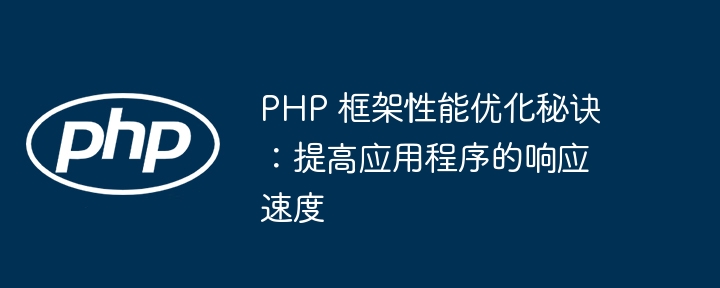
The performance of PHP framework applications can be significantly improved by implementing the following optimization techniques: Use an object cache, such as Redis or Memcached, to store heavy query results or function calls. Enable page caching, such as Varnish or Nginx, to cache all or part of a web page. Optimize database queries, using appropriate indexes and batching requests. Reduce unnecessary requests, such as merging CSS and JS files, using lazy loading techniques, and compressing images. Optimize code, use appropriate data types, avoid unnecessary loops and variable copies, and use code analysis tools to identify performance bottlenecks.

PHP framework performance optimization tips: improve application response speed
Contents
Optimization Technology
Practical Case
Consider an e-commerce application where the product details page requires multiple queries in the database. To optimize this process, we can:
By implementing these measures, we have significantly improved the load time of our product detail pages, thereby improving the user experience and overall application performance.
Conclusion
By adopting these performance optimization tips, PHP framework developers can significantly improve the responsiveness of their applications and provide a better user experience for end users. Ongoing performance optimization and monitoring are critical to ensuring optimal performance of your application.
The above is the detailed content of PHP framework performance optimization tips: improve application responsiveness. For more information, please follow other related articles on the PHP Chinese website!